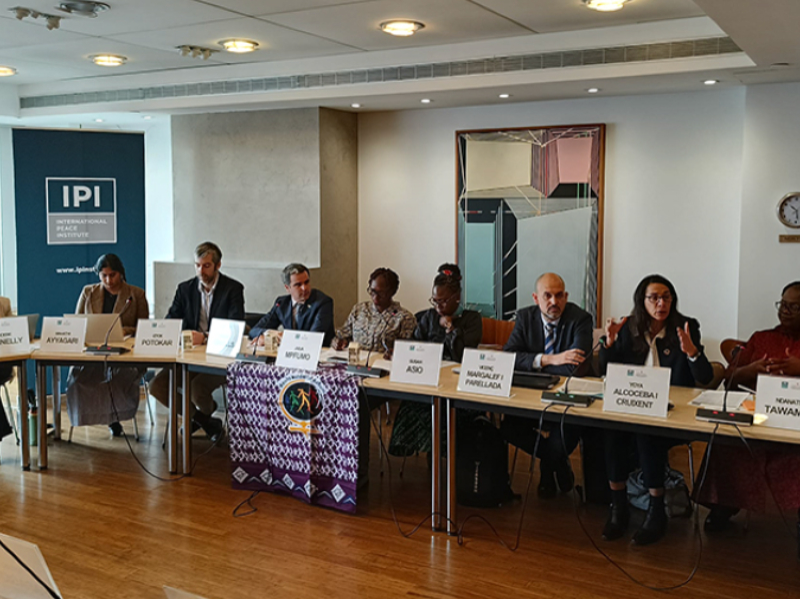- A delegation from the Department of Foreign Action and the European Union travelled to New York for the 68th session of the United Nations Commission on the Status of Women (CSW)
This week,Yoya Alcoceba, general director of Development Cooperation, presented Catalonia Government's public feminist development cooperation policy. She did so at the event'Challenges and Best Practices for Advancing Multilateral Feminist Policies,'co-hosted by the Catalan Government and the International Peace Institute in New York, coinciding with the 68th session of the United Nations Commission on the Status of Women.
After nearly a decade of applying a gender and human rights approach to Catalan cooperation, the Government has initiated a process to translate this knowledge and experience into a distinctly feminist public cooperation policy, which will serve as a framework for future planning.
In New York, General Director Alcoceba outlined the main points of this policy, which align with this year's CSW theme on financing instruments for gender policies. She explained that the process of developing the feminist development cooperation policy"has been as participatory as possible, involving all relevant actors both in Catalonia and abroad."
At the roundtable, the director of the Catalan Agency for Development Cooperation,Vicenç Margalef, and the delegate of the Government of Catalonia to the United States and Canada,Isidre Sala, along with representatives of civil society and experts in the field, also participated. The overall objective of the roundtable was to delve into the challenges of implementing multilateral feminist policies, exchange experiences and best practices, and identify potential alliances for future feminist cooperation policies.
Throughout the day, participants had positively assessed the process of including civil society in policy development, particularly noting the efforts of the Catalan Agency for Development Cooperation to coordinate women's funds, a key instrument of Catalan development cooperation that directly supports women's movements.
The roundtable was organized to coincide with the 68th Commission on the Status of Women of the United Nations, taking place from March 11th to 19th in New York.
Feminist development cooperation, a priority of the Government
Feminist cooperation stands as a key priority in the Development Cooperation Master Plan 2023-2026, overwhelmingly approved by the Catalan Parliament last July.
This plan champions a feminist and transformative approach as a hallmark of Catalan cooperation. Its aim is to tackle the underlying causes of inequalities and human rights violations, both within Catalonia and among its partner territories of cooperation.
Through these efforts, Catalonia strives to foster a more just, equal, and sustainable society, guided by a feminist, decolonial, and anti-racist perspective.
An agenda filled with various institutional meetings
In addition to this event, the delegation led by Alcoceba and Margalef engaged in numerous institutional and working meetings throughout the week with key actors, including UN Women, the United Nations Population Fund (UNFPA), and women's funds worldwide. They also explored synergies with organizations such as the Equality Fund, International Coalition of Sites of Conscience, and Mama Cash. Additionally, they participated in parallel activities alongside CSW68, including those organized by Generation Equality and United Cities and Local Governments.
The cooperation mission is an integral part of the delegation led by the Minister of Equality and Feminisms, Tània Verge, who represents the Government of Catalonia at the United Nations Commission on the Status of Women.


